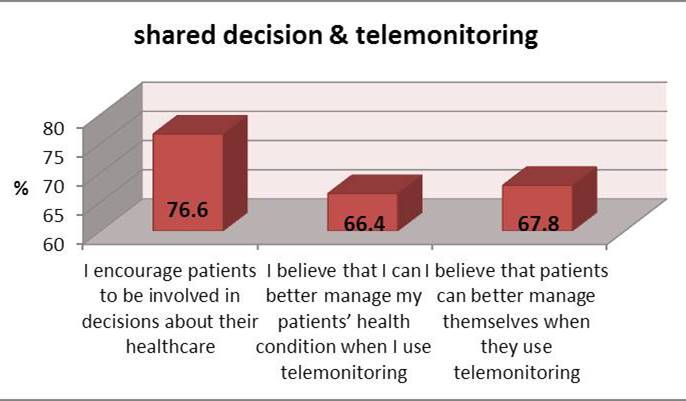
A field survey was conducted to identify CARRE end-user expectations in order to give user feedback for the definition of CARRE use cases and functional requirements. The survey targeted healthcare professionals of all levels, including General Practitioners, Specialized Medical Doctors, Nurses in Units and Outpatients Clinics, etc. and key persons in organizations that provide managed care or health insurance, e.g. in a National Health System, private health insurance company, etc. – interviews with 6 stakeholders :
Significant results of the health professional survey (209 respondents) include:
- The majority (92%) of respondents report that they keep up to date with medical knowledge and that they feel satisfied (87.5%) with who they keep up with latest developments. Mostly internet sources (93.3%) are preferred as well as consultation with colleagues (91.9%). Medical textbooks (88%) and conferences (78.5%) follow, while authoritative evidence based medicine sources are slightly preferred over conventional scientific literature.
- Responses indicate that professionals are not aware of major good or bad impact on patients condition as a result of patients using information they found on the internet. The majority of professionals do not think general health information on the internet is reliable.
- The majority of professionals (76.6%) encourages patients to get involved in decisions about their health management. Also the majority believes that telemonitoring is beneficial both for the professional and the patient in disease management.
Other stakeholder survey included six interviews with various stakeholders with positions of leadership and policy making in fields related to cardiorenal disease.They were familiar with patient empowerment and proponents of such services and interventions, although overall they could not report implementation of empowerment services to the desired extend. A major problem for patients was unanimously reported to be lifestyle management and increased hospital visits, often unnecessary and due to insecurity, arising from lack of proper information and support. Likewise, for doctors major problems are how to convince patients to adhere to lifestyle guidelines and how to keep them informed so that they visit hospital only when necessary, and immediately when necessary. Prevention is a major issue, and most important steps is citizen empowerment for adapting and maintain a healthy lifestyle even from childhood. Changing the healthcare paradigm from disease centered to health and prevention centered seems to be a common belief. This involves public awareness and also proper alerts of when to visit a healthcare professional.
Author: Neringa Karvelyte (VULSK), Domantas Stundys (VULSK), Kalliopi Pafili (DUTH)
Date: 11 April 2014






